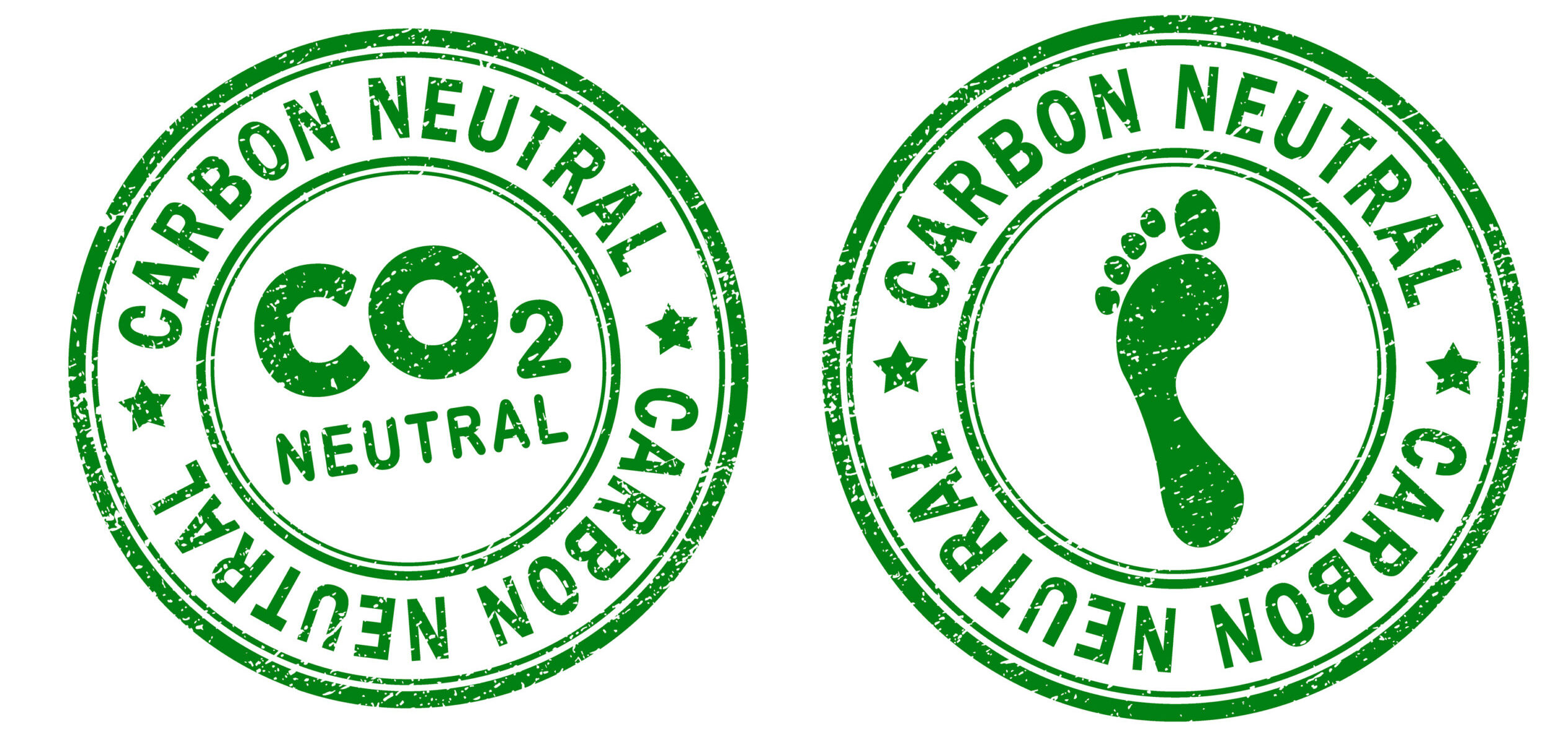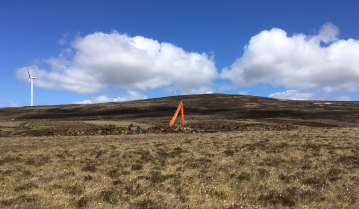Carbon Neutral, Net Zero and a Bit About Ireland and Scotland!
24th September 2021 - Written by Geraldine Boylan

What do we mean by the ‘carbon footprint’ or the emissions from your business? A carbon footprint involves the quantification of the greenhouse gas (GHG) emissions associated with the activities of an organisation, a product or a service, a building or event. There are a number of GHGs which arise from human and industrialised activity – some examples: carbon dioxide (emitted from the burning of fossil fuels), methane (from cattle; from the biodegradation of organic materials anaerobically degrading in landfill) and manufactured F-gases leaking to the atmosphere (such as refrigerant gases) are common examples. But hang on, these all sound like different types of gases – and we talk about ‘carbon footprint’ so how does that work? The convention is to express a carbon footprint in terms of carbon dioxide equivalent (CO2e). This is the total climate change impact of all GHGs caused by an activity / organisation expressed in terms of the amount of carbon dioxide that would have the same impact over a 100 year period. Hence, ‘carbon dioxide equivalent footprint’ which is referred to more commonly as ‘carbon footprint’.
So how is carbon footprint calculated? Well, the methodology which is used most widely is the Greenhouse Gas Protocol. This works with the accounting of direct emissions from an organisation/ product (termed Scope 1 and 2) and the indirect emissions (termed Scope 3). Indirect emissions are those associated with activities which take place upstream and downstream a supply chain – things like outsourced transport, purchased goods and services, waste and water.
Carbon neutrality means accounting for those direct Scope 1 and 2 carbon emissions – which can be achieved by offsetting or sequestering the amount of carbon produced through its operations. Net zero goes further, and means a balance of bringing all GHG emissions – direct and indirect (Scope 1, 2 and 3) associated with your / your business activities, products and services to a net zero point, with a focus on investing in carbon sinks rather than offsets, i.e. undertaking reduction measures first, using renewable energy, reducing fossil fuel use as far as possible, increasing planting such as tree planting, using carbon capture and storage.
Is your business ready for net zero emissions by 2050 at the latest?
The UK’s Committee on Climate Change has advised Northern Ireland to cut its carbon emissions by at least 82% by 2050 to help the UK achieve its net zero ambition. The challenges for Northern Ireland include emissions caused from agricultural practices.
In Ireland, The Climate Action Plan published in 2019 aligns with the EU 2050 net zero goal, but commits to having a “decarbonisation pathway” to 2030; some specific measures are mentioned, including retrofit of existing houses with low carbon technologies for heating and encouraging roll-out of electric vehicle infrastructure.
If 2045 or 2050 still seems like a long way off, how about 75% reduction (on 1990 levels) by 2030 in Scotland? That’s what the Scottish Government’s roadmap says – not yet a legal obligation on companies but with the public purse poised for spending with companies and organisations who are demonstrating their net zero and environmental sustainability credentials.
With under 9 years to go, the business and organisational transformations which will be required for the short-term future mean starting to plan now! The Conference of Parties (CoP 26) due to be held in Glasgow for world leaders in the response to the Climate Emergency is upcoming in November 2021. Be under no illusions, despite continued impacts of Covid-19, despite Brexit, despite the impending economic difficulties, the climate is changing and we must adapt and take action now to mitigate future impacts.
As the saying goes, “change, even for the better is not without pain” (ish). This pain may mean financial planning to meet investment costs, partnerships for trade, research/development and ways of working and moving. It might mean transforming business models and embracing the circular economy – servitising products (think how Netflix and streaming through smart devices has displaced Blockbuster video stores!), remanufacturing and retaining value and customers for longer. The other side of pain, is in fact, opportunity. Ask any good business person.
IT, remote working learnings from the Covid-19 pandemic have already accelerated innovation, ways of working, consumer habits including buying local and appreciation of green space and exercise in travel such as walking and biking. The empty shelves and lockdown on travel have forced people to think individually and as businesses about the value of how we eat, move, relax, educate and do business.
Get your plan to net zero emissions started – and start now. You/we might not have all the answers today; at Mabbett we are helping clients to create a framework for working towards carbon neutrality for your organisation and managing progress towards net zero in your business. We provide consultancy support from baseline to opportunity assessment and training to engage your staff and stakeholders.
This means gaining real commitment from leadership, building awareness and competency, generating an initial baseline and carbon footprint, objectives for absolute year-on-year reductions (science based targets), offset plans (but not forever) and exploring opportunities for reduction/elimination of greenhouse gas emissions, all managed within a Plan-Do-Check-Act structure.
In 2045, we will all hopefully be 24 years older. Think what age that would be for you. Is that going to be the prime of your career, or perhaps you’d be retired by then! When you get in your time-machine to come back to 2021, what do you imagine you’d be advising yourself?
- Invest in green technology? Stop investing in polluting industries? Move your pension to sustainable/ESG supporting funds?
- Reduce your impact through fewer flights, reduced petrol/diesel vehicle use, reduce waste and energy, reduce intake of meat?
- Transform your business model and embrace circular economy?
Simply to get an action plan – sooner? - “Well done to me” – your actions counted as climate change has been controlled?
The world will not be the same, so neither will your business. Be in business in 2045, seek out the opportunities from this new world of net zero emissions, and let your children and grandchildren thank you that you had the foresight to protect their future as well as your business.
You/I have the opportunity to directly and positively impact your sustainable business future – but you/I must act now.













 Previous
Previous 
